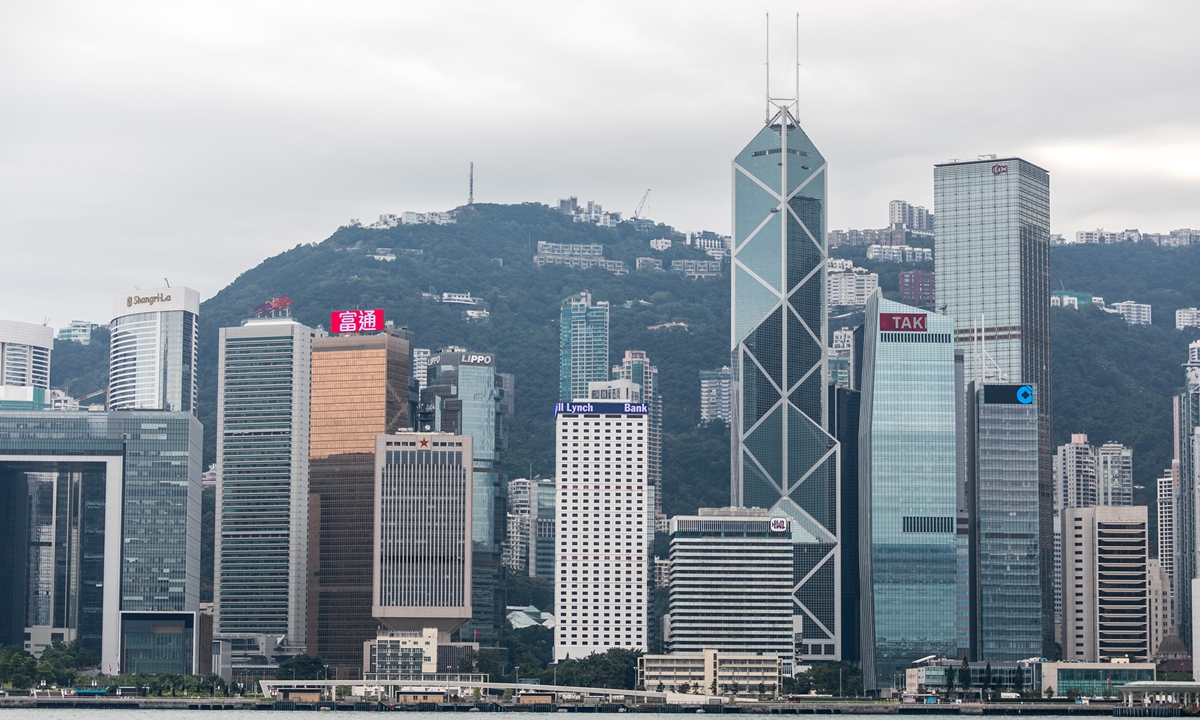
Victoria Harbour in the Hong Kong Special Administrative Region Photo: VCG
To speed up the detection of COVID infections among communities as Hong Kong’s fifth wave of the epidemic saw a daily increase exceeding 3,000, local health authorities are mulling the rollout of health codes adopted by the Chinese mainland and the Macao Special Administrative Region (SAR).
Lo Chung-mau, head of HKSAR’s Health Bureau, said in a recent interview that so as to detect COVID infected patients early, Hong Kong is considering taking reference to the practices of the Chinese mainland and its close neighbor Macao SAR and add a health code system, and may also require real-name registration for its current LeaveHomeSafe system, local media hk01.com reported on Sunday.
“If we let the confirmed patients go around freely, we will then be limiting the freedom of those who are not infected,” Lo said, noting that the confirmed patients should not endanger public health.
He also said that the current demand for quarantine-free travel to the mainland will not be realized for the time being, and that the Hong Kong government is making efforts to increase the passenger volume of customs clearance and enhance convenience, while hoping that “tomorrow will be better,” the report said.
In the past, about 2.5 percent of Hong Kong residents were diagnosed after clearing customs and entered the mainland. Lo believes if the number of diagnoses drops, the current customs clearance requirements may be relaxed and more quota will be given.
Speaking of how the health codes will be introduced, Lo said it would give red, yellow and green codes to residents to strengthen the ability to spot potential infection risks.
The bureau is also optimizing the current system, which will not only be able to inform the public to receive nucleic acid tests, but reminding them not to go to high-risk regions before taking the tests. They are considering putting bans on certain venues to restrict entrance, Lo said.
He urged the public, especially vulnerable groups, to take the nucleic acid tests on top of the current quick tests, and that the government will bear the cost of nucleic acid testing.
On Thursday, the city reported a total of 3,028 new infections, of which 172 were imported. It was the first time for the daily case count to exceed 3,000 since early April, local media reported.
